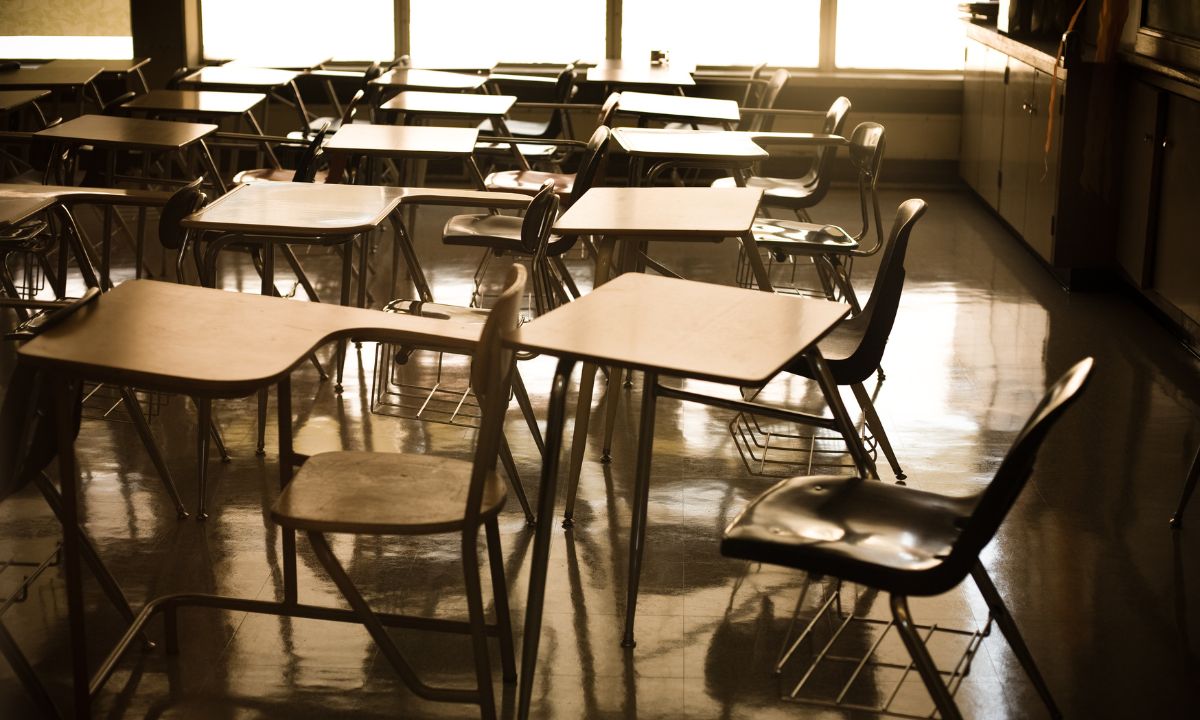ACLU: Out-of-School Suspensions Hit Rhode Island’s Students of Color Hardest
Report shows students inordinately suspended for minor and subjective types of misconduct such as “insubordination” or “disrespect.”

Get stories like this delivered straight to your inbox. Sign up for The 74 Newsletter
Students of color continue to be disproportionately punished when compared to their white counterparts, according to a new report on school suspensions released Monday by the American Civil Liberties Union of Rhode Island.
The report, titled “Still Oversuspended and Underserved: Continuing Disparities in Suspension Rates in Rhode Island,” found that racial disparities remain the same even as the overall number of school suspensions dropped significantly over the past two decades.
“In order to truly provide an equitable, uplifting, and educationally enriching school environment for all students in our state, we must make sure that no students are being inappropriately removed and excluded from the classroom,” ACLU Rhode Island Policy Associate Hannah Stern said in a press release.
Stern added that schools should not punish students for “normal adolescent misbehavior” but ensure students have appropriate social and emotional support in schools.
In 2016, the General Assembly passed a law making suspensions as a last resort for those students whose misbehavior was disruptive to the learning experience of other students and could not be resolved through counseling and other interventions.
Despite progress in reducing the number of suspensions, the authors found that the proportion of Black and Latino students who are suspended remained the same.
The report looked at suspension data for the three years preceding the Covid-19 pandemic — 2016-2017, 2017-2018, and 2018-2019. Data showed Black and multi-racial students were suspended at a rate 1.5 times higher than their numbers in the general population would suggest. For Latinos, the rate was 1.3 times higher.
Native American students experienced the highest rates of suspension at 2.5 times greater than expected. That puts them on par with students with disabilities who face a 2.5 times greater suspension rate than their counterparts.
Far fewer white students receive out of school suspensions. The report showed the rate for white students to be 0.71%.
The more students are removed from classrooms and punished, the more likely their academics are to suffer and to drop-out, increasing vulnerability to the criminal justice system as adults, the report said.
The Rhode Island Department of Education called the report findings “insightful” and that it will use the data to “address inequities” in education.
“For students to succeed, it is crucial that they are in school every day engaged and learning,” Department Spokesman Victor Morente said in an email.
“RIDE is committed to working with stakeholders including students, families, educators, and members of the General Assembly to address concerns and ensure that schools are inclusive environments conducive for learning.”
Narragansett schools show highest disparity
Narragansett schools had the highest ratio of Black student suspensions. Blacks accounted for 0.8% of the student population attending Narragansett schools but represented 14% of suspensions in the district during the 2018-2019, according to data in the report. That made Black students 18 times more likely to be suspended.
The ACLU found that rates of out-of-school suspensions for behaviors classified as “insubordination” or “disrespect” consistently hovered around an alarming 40% of all suspensions.
“Minor offenses which are more reliant on the interpretation and tolerance level of teachers or administrators,” the report reads, “ should be addressed by behavioral counseling and restorative justice measures rather than through removal from the school for a period of time.”
In addition, the 2018-2019 school year saw 1,400 suspensions of students in kindergarten through grade five, of which 30% were for such subjective offenses.
In its conclusion, the report called for legislative action to alleviate the situation. Both chambers of the General Assembly are considering bills that implement its recommendations.
H5422 and its sister bill in the Senate, S0189, would limit out-of-school suspensions to students grade six and above, who have not responded to other interventions — including restorative justice practices — and are deemed a risk to the school community. The bills would require consultation with a mental health professional when considering the suspension of a student in lower grades. In addition, districts would be required to submit a yearly report analyzing data and the administration of suspensions.
Rhode Island Current is part of States Newsroom, a network of news bureaus supported by grants and a coalition of donors as a 501c(3) public charity. Rhode Island Current maintains editorial independence. Contact Editor Janine L. Weisman for questions: [email protected]. Follow Rhode Island Current on Facebook and Twitter.
Get stories like these delivered straight to your inbox. Sign up for The 74 Newsletter

;)